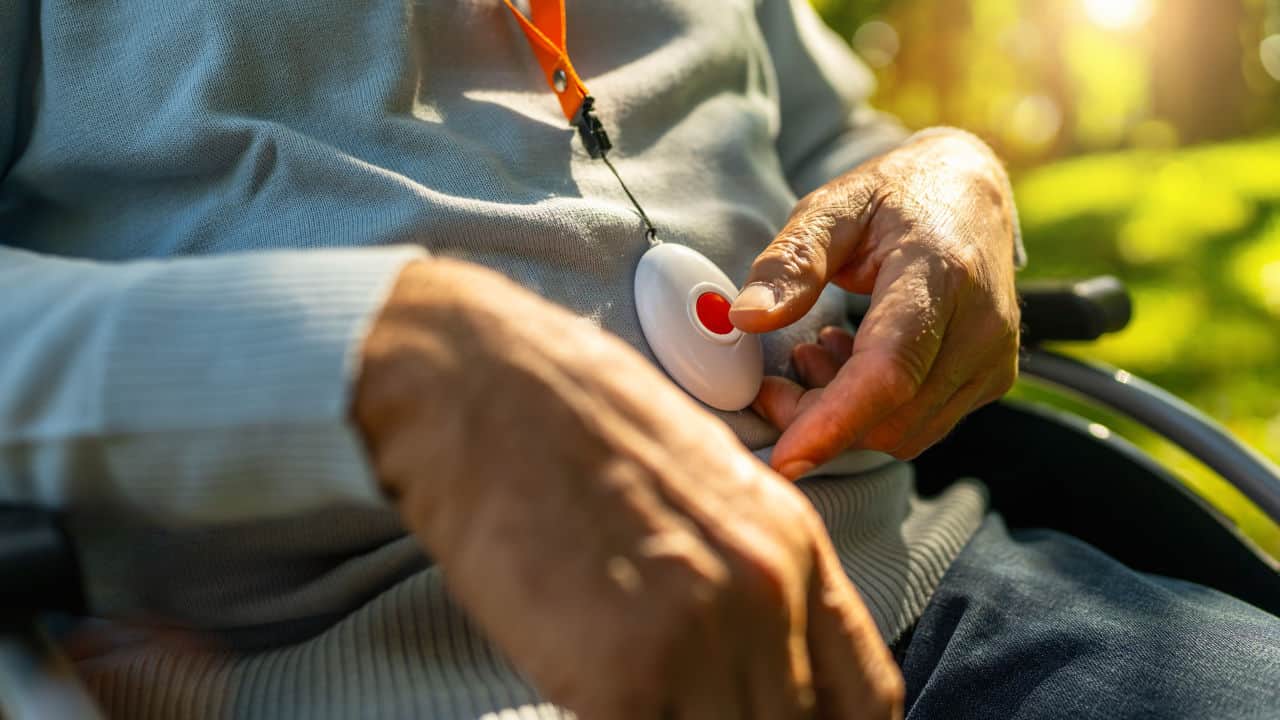THIS POST MAY CONTAIN AFFILIATE LINKS. PLEASE SEE MY DISCLOSURES. FOR MORE INFORMATION.
In today’s world, we live a fast-paced life. In this digital age, we have everything at our fingertips in one click, making us increasingly accustomed to instant gratification.
If we see someone on social media with a new gadget or trendy clothes, we want them now!
If we can’t have them right away, we are so disappointed because we are not used to waiting for anything.
We even expect our food to be delivered within minutes of ordering it.
The need for instant gratification has entered all parts of our lives, including our work and finances, making us impatient and more easily distracted.
When faced with work, we often give in to the temptation to put off the task at hand and browse the internet.
Even if we want to save for a new home or car, we often spend money on unnecessary items that provide immediate satisfaction instead.
While this may not seem like a big deal, it can ruin your life and finances in the long term.
In this article, we will explore 24 ways in which seeking immediate pleasure can negatively impact your life and finances and why you want to break this destructive habit.
1. Gets You into Debt

One sure thing that will happen if you get into the instant gratification trap is you will accumulate debt.
When you give into the temptation of buying things for instant pleasure, you do not consider the long-term consequences of your actions, and debt can quickly pile up.
2. Missing Out on Reaching Savings Goals


It stands to reason that if you spend your money on instant gratification, you are not saving it.
If you want to buy a house, save for retirement, or even have an emergency fund, constantly giving in to your spending will keep you from reaching your savings goals.
3. Strained Relationships


Money issues can wreck relationships, and instant gratification spending can be a major source of conflict.
If you constantly spend money on yourself and your partner is still trying to save money and pay the bills, it can lead to resentment and mistrust.
4. Sacrificing Quality for Quantity


If you constantly buy stuff, you most likely sacrifice quality for quantity.
You can enjoy more instant gratification by buying cheaper products or services that provide immediate satisfaction, but in the long run, you are left with a lot of cheap stuff and nothing that lasts, which ends up costing you more money.
5. Poor Health


If you spend money on instant gratification for food, drinking, or smoking, you are sacrificing your health for short-term pleasure.
You can end up with poor physical and mental health, leading to even more spending on medical bills and treatments to fix the damage caused by unhealthy habits.
6. Clutter and Disorganization


Instant gratification spending for items can lead to clutter in a messy living space where you can’t even find what you bought, so you buy a duplicate.
Cluttered spaces can create stress and make it difficult to focus on work or daily tasks, making you less productive. Depending on how cluttered your house is, it can be a great place for rodents and bugs to infest.
7. Missed Opportunities


If you constantly spend money on immediate pleasures, you may miss opportunities for long-term growth and success because you lack the necessary resources.
Whether you want to start a business or continue your education, you have to save money and resist the urge to splurge to achieve your goals.
8. Environmental Impact


We live in such a disposable world today that it’s easy to overlook the impact of our spending habits on the environment.
Every time you buy something new and throw away an old item, you add to the growing waste problem in landfills.
9. Buyer’s Remorse


Most people who give into impulse buying end up regretting their purchases.
Once the new wears off, you may realize that you didn’t really need or even want the item in the first place, and you wish you had the money back that you spent.
10. Lost Identity


If you find yourself buying things to keep up with recent trends or impress your friends, you could lose your sense of self.
Your possessions should not define who you are.
Instead of defining yourself through material possessions, it is important to focus on what truly makes you happy and who you are.
11. Depression


Instant gratification from material possessions can lead to a temporary high but can also lead to depression, especially if you end up in debt or have difficulty sleeping.
You may feel empty, unhappy, and unsatisfied when the initial excitement wears off.
If you find yourself struggling with depression, seek help from a trusted friend or professional.
12. Boredom


Once you buy something that caught your eye, it doesn’t take long before you want something more exciting.
This constant pursuit of material possessions can lead to boredom, and you can’t concentrate on daily tasks and what truly matters in life.
13. Leads to More Impulsive Spending


Impulsive spending can quickly become a bad habit that is hard to break, even if it starts with small purchases.
When you constantly give in to your desire for new things, it can lead to larger and more expensive purchases that you may not be able to afford.
14. Making Investment Risks


The need for the excitement of instant gratification can cause you to take risks in investments that you may not have otherwise.
You might generally take small risks, but each time you achieve that instant gratification, you may be tempted to take bigger, more dangerous risks.
15. Caught In a Loop


The desire for instant gratification can become a cycle where you always crave and chase quick satisfaction.
To break the cycle, try setting long-term goals and rewards for yourself. The next time you feel tempted by instant gratification, think about the long-term consequences and try to make a decision that will benefit you in the future.
16. You Give Up on Your Dreams


We all have hopes and dreams, but going for instant gratification can cause us to give up on them.
Instead of letting your desire for instant gratification rob you of your dreams, keep your eyes on the prize and make choices that go along with your long-term vision.
17. You Lose Control of Your Life


You can quickly lose control of many parts of your life if you constantly give into instant gratification.
You lose control of your time because you have to work more hours to pay for what you bought, and you lose control of your money because you are constantly spending it on things that give you temporary pleasure.
You also lose control of your health as you indulge in unhealthy habits and ignore long-term consequences.
18. You Become More Impatient


We all want to mature mentally as we age, but giving in to instant gratification can stunt that growth.
When you always expect immediate results and quick fixes, instead of developing perseverance and patience, you become increasingly impatient as you seek instant gratification in all aspects of your life.
19. Give Up Necessities


So you want that new game or the latest phone, but at what cost? Do you buy less groceries or skip out on paying bills to afford it?
Giving in to instant gratification can mean sacrificing essential necessities for short-term desires, leaving you living without the things you need.
20. Loss of Self-Value


If you spend all your money on material possessions and instant gratification, you won’t be able to save money, reach your goals, or stay out of debt.
When debt piles up, and savings disappear, it can lead to feelings of worthlessness and a loss of self-value.
21. Credit Score Takes a Nosedive


Your smaller buy now purchases may not seem like your credit can be impacted, but it can if you keep it up.
You can’t stay ahead of instant gratification spending without eventually going into debt and using credit cards to finance your spending habits.
This will eventually lead to maxed-out credit cards and a negative credit score.
22. Form Addictions


Instant gratification can quickly turn into an addiction where you feel like you need to constantly make impulse purchases to feel happy or fulfilled.
It can also add to other addictions, such as food addiction, substance abuse, or gambling.
Consider seeking help if you constantly succumb to instant gratification and cannot control your spending habits.
23. Other Decide What We Buy


If you are on social media and see a friend has a new car, house, trendy new clothes, or a dreamy vacation, you may feel pressure to keep up with them.
If you buy things to keep up with your friends, they decide what you purchase, and you are no longer in control of your spending habits.
24. You Give Up a Higher Standard of Living


When you instantly buy everything you want without saving anything for the big purchases, you are giving up the opportunity to live a higher standard of living.
Without saving money now, you won’t be able to afford a nicer car or bigger house in the future.
Tricks Advertisers Use to Get You to Spend Money


When it comes to spending, we all like to think that we are in control. The truth is, advertisers know exactly how to get us to spend more than we intended.
By understanding their tactics, you can be better prepared to resist them and keep your hard-earned dollars in your wallet.
21 TRICKS ADVERTISERS USE TO GET YOU TO SPEND MONEY
Fun Money Saving Challenges


Do you find it boring to save money?
If you are motivation by turning things into a game, check out these money saving challenges. There is a game for you that will make saving fun and exciting so that you make it a priority to save money.
49 FUN MONEY SAVING CHALLENGES
I have over 15 years experience in the financial services industry and 20 years investing in the stock market. I have both my undergrad and graduate degrees in Finance, and am FINRA Series 65 licensed and have a Certificate in Financial Planning.
Visit my About Me page to learn more about me and why I am your trusted personal finance expert.
Read the full article here














